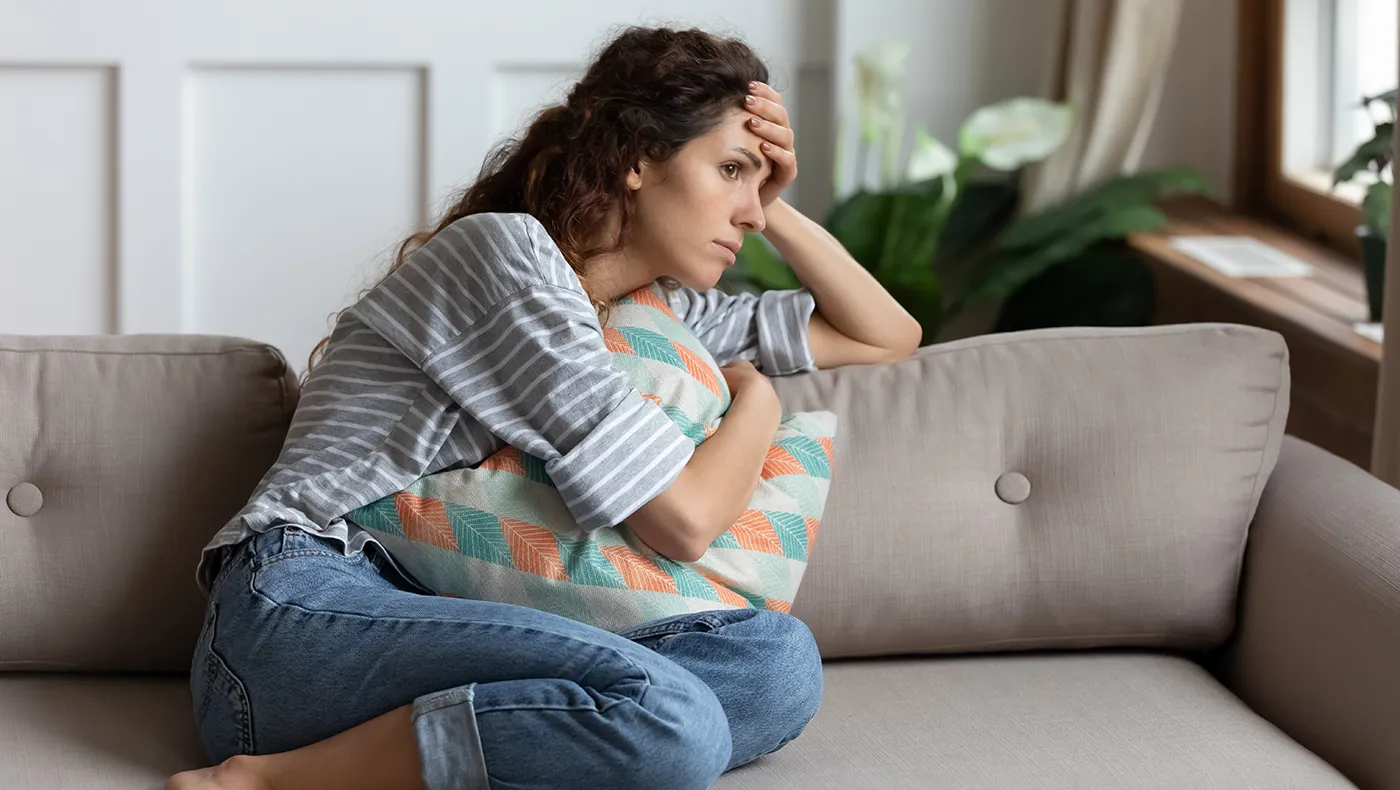How to Reduce or Stop Heavy or Abnormal Bleeding
Bleeding that differs from your normal pattern can be quite alarming. However, the good news is that most of the time the cause is not something to be worried about.
About 50% of women don’t discuss heavy bleeding with their doctors for a variety of reasons including embarrassment.* Many women find this conversation easier to have with a female doctor.
It is still important to see a doctor, just in case the issue is something more serious. In most cases, AUB can be treated with non surgical means such as medication or hormone therapy.
It’s not uncommon for women to suffer from abnormal uterine bleeding, often referred to as AUB, at some point in their lives. So, if this is you, rest assured you are not alone.
AUB is characterised by irregular, heavy or prolonged bleeding, or bleeding when you shouldn’t be (such as in between your periods, after sex or after menopause), and can be caused by many issues such as hormonal imbalances, structural issues like fibroids or polyps, as well as other medical conditions.
Abnormal can mean anything from bleeding longer than usual during menstruation, bleeding heavier than usual, or bleeding at an irregular time. And any bleeding after menopause should be reviewed.

What causes abnormal bleeding or heavy periods?
There are many common causes of abnormal bleeding for women after the age they start menstruating. They include:
Hormonal
Occurring because of hormonal fluctuations in teenagers, and women approaching menopause.
Fibroids
Benign tumour or tumours located in the uterus.
Polyps
Adenomyosis
Polycystic Ovary Syndrome (PCOS)
Pregnancy Complications
Blood clot issues
A condition that affects the body’s ability to clot blood effectively.
Infection
Endometrial Hyperplasia
Cancer
When should you see a doctor?
All abnormal bleeding issues can be diagnosed by a gynaecologist who understands the symptoms and women’s unique health. In Dr Belinda’s experience, these are the symptoms you should be aware of and seek medical advice for:
Bleeding between periods
Bleeding after sex
Bleeding after menopause
Heavy or prolonged bleeding at any time during or after a cycle
For women over 30 and especially over 40, any abnormal bleeding should be investigated by a gynaecologist to rule out any potentially serious causes.
How does Dr Belinda diagnose your symptoms?
Dr Belinda may first suggest an ultrasound of your pelvis.
After an ultrasound and any other test results are returned, Dr Belinda may suggest a procedure called a hysteroscopy to look directly at the inside of your cervix and uterus to investigate causes and find solutions. She will share her findings of the hysteroscopy procedure so that you will have a clear understanding of your options and next steps.
A hysteroscopy is the gold standard in uterine diagnostics. Similar to a colonoscopy or a gastroscopy, it allows your doctor to look inside your uterus and cervix in order to take some tissue samples and establish what the cause of your bleeding issues are.
Do you need to see your GP first?
To see a gynaecologist and receive a Medicare rebate, you will need a referral from your GP. However, your GP will not be able to perform a hysteroscopy, only a qualified specialist gynaecologist can perform a hysteroscopy to diagnose the conditions mentioned above.
Is a hysteroscopy needed?
Sometimes to invetigate and diagnose the cause of abnormal or heavy bleeding, a hysteroscopy is needed. This can only be performed by a specialised gynaecologist, not your GP. Your gynaecologist will talk to you about this procedure if it is needed for you.
A hysteroscopy is usually performed under a light general anaesthetic in a hospital (though some people choose to remain awake and do the procedure at a hospital clinic) and usually takes 30 or so minutes, depending on your specific bleeding issue.
It is performed using a small, thin telescope called a hysteroscope. The scope is connected to a light and a camera. This allows Dr Belinda to see clear images of the inside of your uterus on a monitor. The hysteroscope is passed through the vagina and cervix.
During a hysteroscopy, if you’ve chosen to be asleep, you won’t feel anything. During this initial diagnostic procedure, no incisions will be necessary. Usually Dr Belinda will take a sample of the womb lining to assist her in diagnosing your issue. This is known as a biopsy. If there is a need to remove something such as a polyp or fibroid, Dr Belinda will use a special tool inserted through the hysteroscope. Any tissue that’s removed will be sent to the lab for further analysis.
Most women can comfortably return home straight after recovery from the anaesthetic. It’s important that you’re picked up by someone you trust, and that this same person stays overnight with you.
Dr Belinda performs hysteroscopies at North Shore Private Hospital and Royal North Shore Hospital, both located in St Leonards, Sydney, and Ryde Hospital in Sydney.